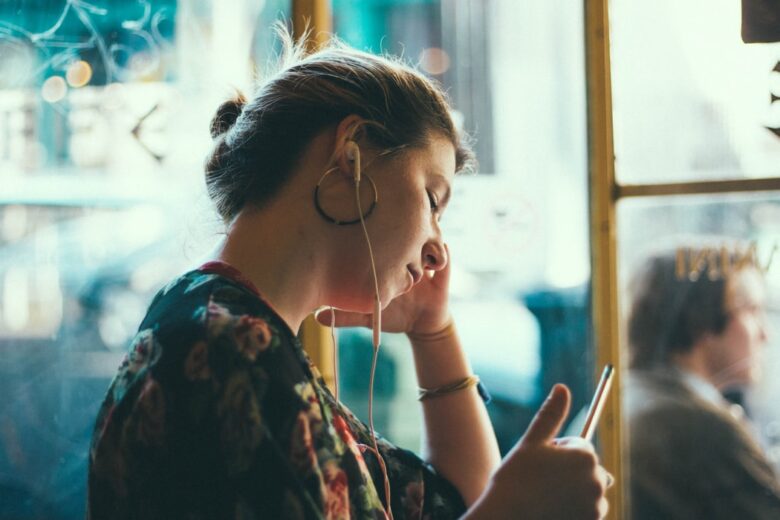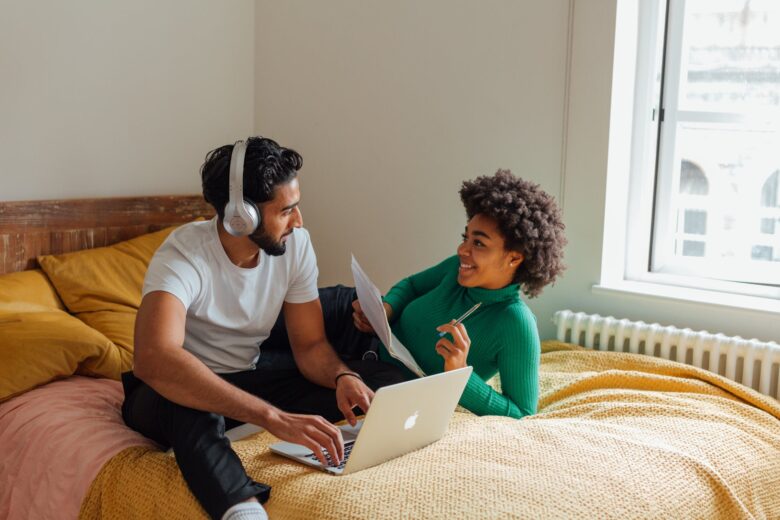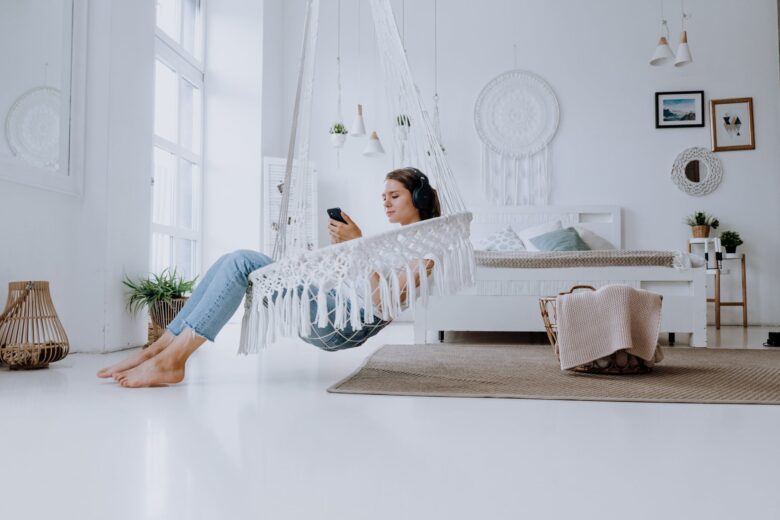There are some lucky people in the world who can fall asleep as soon as their heads touch the pillow, but when it comes to most, people usually need at least 10 to 15 minutes to lay in a dark room so they can fall asleep. For those who suffer from insomnia or those who just have an irregular sleep pattern, this process could take a lot longer. Our main goal is to be able to get some rest as soon as we get comfortable in bed, and we try to test different things out that could help the process.
One thing that we tend to forget is that it’s not just about how fast you can fall asleep, but you should also consider the quality of the process, how many times you wake up per night, and if you get up rested, or if you feel like you are just even more tired than before. It is said that music therapy can help out a lot, but is this really true?
In this article, we are going to try and answer one of the most asked questions when it comes to your favorite songs – is it bad to fall asleep while listening to music, and should you do it?
Personal preferences
The first thing we are going to talk about is your personal preferences. Some people say that they get distracted when they listen to some tunes when they are in bed, they focus so much on the lyrics, and they cannot fall asleep until they turn the music off.
On the same note, there are those who say that the right tune relaxes them, helps them clear their minds, and helps speed up the whole process. So, you should know that it all ultimately depends on you.
Have you ever went to bed while the radio was on? Did it help you or did it distract you? If you haven’t done this before, then you should try it out and see how your body reacts. Check Daisie for more help.
Volume

Now let’s talk about the volume, and how loud should the songs be when you are getting ready to go to bed. The rule of thumb is that you need something that will help you relax, and when the songs are way too loud, you won’t be able to do that.
You may even get annoyed or cranky if the tune bothers you, so experts suggest that you should lower the volume to something that is barely noticeable. It will be like having a tune in the back of your mind that will help you relax, get in that fully calm mode, and you won’t have any issues falling asleep, especially after a long day.
Benefits

Now let’s talk about the benefits that come with this practice, and we will also mention some of the drawbacks. There are a lot of advantages that come with listening to a calming beat before you go to bed, and it can help you improve your mood, and you will be much more relaxed overall.
As you can see on this website, the right type of music can help you block any background noise, and it can also help you remember things and even learn faster. In addition to this, it will help you have a sounder sleep and you won’t wake up too many times during the night.
However, you should be careful about what you listen to. You should never play songs that will make you disturbed or annoyed, and you should steer away from sudden beats that may disrupt your sleep schedule. Choose something calm and relaxing, and adjust the volume. On the same note, you should never use headphones or earbuds while you are sleeping, as the cable from the headphones may wrap around your neck and cause harm, and the earbuds may contribute to earwax buildup and infections.
Set a timer

Some people say that having a tune in the background helps them fall asleep a lot faster, but there are also those individuals who report vivid dreams that are not always too pleasant when there’s noise in the background. So, music helps you fall asleep, but it does not improve the quality of your sleep, in the long run, you should choose the best of both worlds.
Before going to bed, create a playlist and set a timer for it. It is said that you should get your device to stop streaming the songs after about an hour, so you have enough time to fall soundly asleep. This will help battle insomnia, and it can also prevent any unpleasant vivid dreams. Note that you can play around with the timers, and see which one works the best for you.
Precautions
One thing that you should always be careful about is earbuds and headphones. You should never fall asleep while having something inside your ear, and you should not listen to music if this is your only option. If you sleep with earbuds every night, you risk contracting a serious infection or bacteria, you may damage your hearing, and you may even do some physical damage to your ears.
So, the best thing you can do is have the songs put on speaker, once again, on the lowest volume possible. To make sure you are on the safe side, you should never listen to songs that may make you anxious or nervous, and you should not listen to anything on full volume. If you notice that you are experiencing any strange or scary dreams, you should change the genre, or stop this practice altogether.
Ultimately, listening to music as you fall asleep can help you relax, it can help you forget about all the stress you had throughout the day, and it can help you fall asleep faster. However, this is all individual, and there is no guarantee that it is going to work for you. The best thing you can do is test things out, see how your body reacts to different tunes, check to see what relaxes you, and if you can keep the music up throughout the night, or if you would need to set a timer up.

